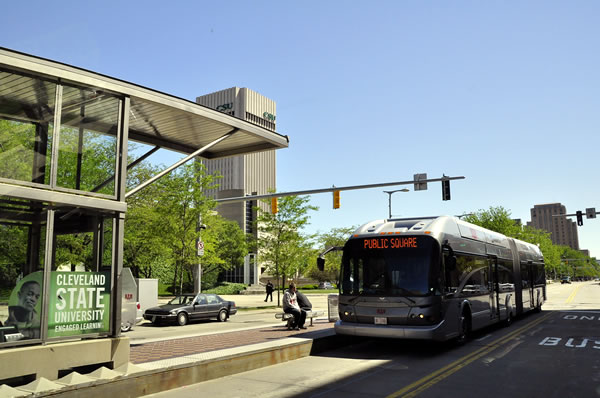
Once upon a time, about ten years ago, a coworker of mine expressed surprised to hear that I owned a car — a 1998 Honda CR-V, which to this day still looks pretty sharp, runs well, and has fewer that 150,000km or just over 93,000 miles on its odometer.
“But you’re an anarchist!” she exclaimed. “You bike to work!”
It is true, I do own and make good use of a car, but my biking to get around doesn’t make me an anarchist any more than my ownership of segmented funds makes me a robber baron. I’m not declaring war against the car, just on complete and utter dependency on it. There’s a time and situation for every kind of getting around, from the personal car, to public transport, to biking, to walking.
Even the most conservative person will tell you that compared to so many investments, cars are terrible ones (watch what happens to its value the moment you drive it off the lot), that taking transit or a cab is better than drinking and driving, and would approve of a transportation mode that’s cheap, keeps you fit, saves you money, is largely unregulated and powered by the sweat of your brow…at least until you tell him or her that it’s a bicycle.
And now, some news on car alternatives…
Public transit is underfunded because the wealthy don’t rely on it
Creative Commons photo by Embarq Brasil.
Wired points to a study by pro-transit group Embarq [PDF] found that Bus Rapid Transit (BRT) — a system of buses using dedicated lanes, stops and schedules — provides numerous benefits, from drastically reduced commutes times for everyone, to reduced road fatalities, to improved air quality. The effect is very noticeable in the world’s largest cities: it’s shaved an hour off the average daily commute in Istanbul (population 14 million) and Mexico City’s air pollution has been cut so that it saves 6,000 sick days a year. Even if you take the most self-centered definition of “traffic congestion”, “everyone else on the road except me”, having such a system or its equivalent is a win.
The problem is that the benefits of public transit are most greatly felt by middle- and lower-class people, and not those who typically chum around with and line the pockets of politicians. A recent Salon article by Alex Pareene got to the heart of the matter with just the title: Why mass transit is doomed in America: Politicians don’t know people who use it. One of the nice things about Toronto’s Metrolinx is that it was open to grassroots projects like Toronto Transit Camp, which gave access to people who normally don’t have access to politicians, letting them share their transit experiences and ideas, and giving a chance to introduce some balance to get back into the system.
Also worth reading: To attract urban investment, build a bus line.
Bike lanes DON’T hurt retail business
The University of Washington’s Kyle Rowe decided to see what happened after 12 parking spots were removed from Seattle’s 65th Street and replaced them with a bike lane. Many retailers on the stretch carped, saying that the lack of parking spaced would hurt their business. Here’s how retail businesses fared in the end:
While there were no controls to determine whether or not the boost in retail sales was caused by adding a bike lane, it’s pretty clear that it certainly didn’t hurt.
To test the hypothesis, they looked at another Seattle street in the Greenwood district. The result:
There’s no jump in retail like there was on 65th Street, but there was no harm, either. As The Atlantic’s article on the study concluded:
Rowe’s isn’t the only recent study of its kind. A very fresh analysis of how bike lanes (and pedestrian improvements) impact retailers in New York reached similar conclusions. At best, retailers in a corridor seem to benefit from the change. At worst, they can still count on business as usual.
Why people voted for Rob Ford’s transit vision
Simply put: willful pig-ignorance.
Credit for the bit about bikes being the perfect conservative vehicles (“cheap, largely unregulated, powered by the sweat of your brow”) goes to John Bowman, who first used that summary in a Facebook post a little while back.


